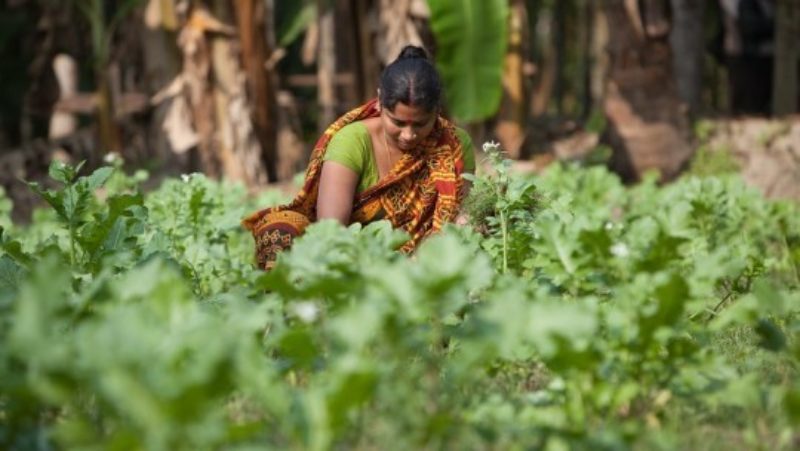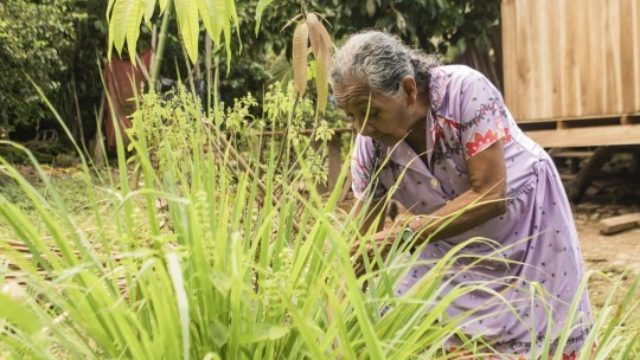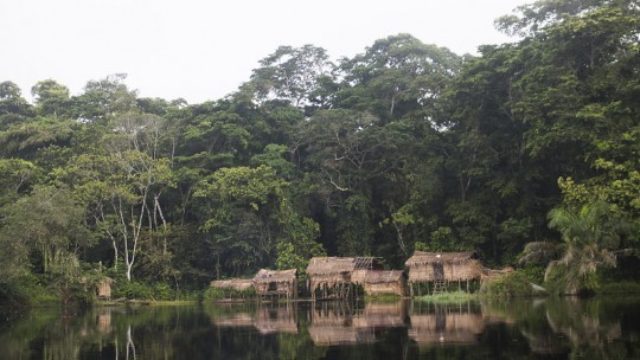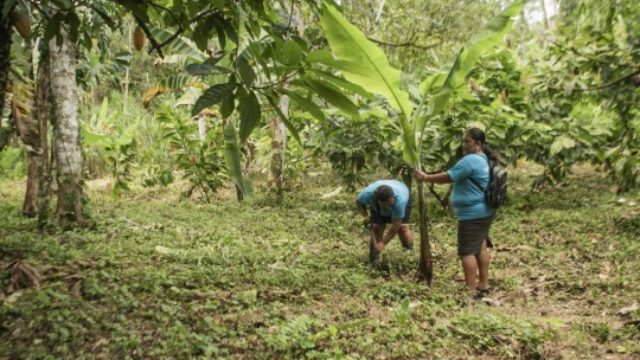Decoloniality and the new ethics of climate and nature
Jess Auerbach argues for decolonising ecological research to build a discipline that is more inclusive, creative and ethical.

This article appears as part of our blog series, co-developed together with IIED's Natural Resources group, Putting social and environmental justice at the core of conservation, climate and development, in which we scrutinise differing approaches to tackling the nature and climate crises through the lens of equality and intersectional justice.
"How many planets do we need if everyone on earth were to live just like you?"
I ask this to students in almost every class I teach, from first year to PhD. I find it a useful question because it allows them to engage in the complexities of consumption, inequality, environmental protection, policy and politics in a very concrete way.
I ask them to complete the ecological footprint calculator and then we discuss: how do we live? Who, and what, do we live with? What are we willing to sacrifice?
In order to change the status quo of ecological desecration, we need to open entry points of imagination that offer not only critique, but also solutions. We know that both the experience and understanding of climate change has created serious emerging mental (and physical) health concerns, in the face of which it can be difficult to function. Yet much can be done to concretely change the systems we live in.
In a recent paper 'Decoloniality and anti-oppressive practices for a more ethical ecology' I and two colleagues offer five practical interventions to shift global systems, knowledge practices and imagination.
Five ways to decolonise
Firstly, we argue for the ‘decolonisation of the mind’ – a term coined by Ngũgĩ wa Thiong'o. All of us are shaped by received systems of knowledge, but those who are raised in Western, usually English-language, institutions of learning are often not exposed to any alternative perspective.
Knowledge comes in many forms beyond that which can be written or represented in a graph, and openness to other presentations of information, relationship and meaning is a powerful first step in broadening our receptivity to solutions.
Secondly, we argue that it is important that histories be known – not only in the humanities, but in all fields. Here we mean histories of peoples, land and environment, but also histories of knowledge systems, access to resources and the patterns of relationality between people and non-human systems. Ecologists (and others) are situated parts of complex systems, and so biography, relationships and long-standing commitments (or lack of them) all contribute to how studies and interventions take place.
As a third critical intervention, we call for access to knowledge during all stages of knowledge development and publication, to be decolonised. It is important to recognise that scientific systems of data collection, storage and access as well as project formulation, peer review and recognition, all take place in an unequal global system skewed towards the ‘North’.
In this space, voices not affiliated with settler-colonial institutions of knowledge (such as universities) are often treated as marginal. Open access to publications is not enough – we need to enable equitable participation at all stages of the research process, from formulating the questions to the long-term management of datasets.
An example of this process in action is the Bukavu Series, an online exhibition that explores the dynamics between researchers in the global North and the global South. Through the lens of researchers based in eastern Congo and Europe, the series is a result of a collective and reflexive process that started in early 2018, giving space to those (Silent) Voices that often remain invisible in the production of knowledge.
Our fourth intervention is particularly important for teaching undergraduates, and has to do with expertise. Who is considered an expert, and why?
Is it enough to ‘know’ a place/ecosystem/person or do you have to love them to be invested in their protection? What kind of knowledge (and love) are we taught to admire? The tools of extractive, neoliberal capitalism have taken us to this point of planetary crisis. Clearly, we need to find the people with different tools, and take them seriously.
Finally, we argue that this critical work cannot be done alone. Addressing the intersectional complexities of the challenges that we face will need to be done in diverse, inclusive teams. This requires a new critical skill set of listening, self-awareness and reflection that has not historically been core to scientific training.
The environment and climate change sector must also up its game to become more diverse and inclusive. In a recent survey conducted by US-based Diversity in Sustainability on the state of diversity, equity and inclusion in sustainability, more than half of the 1,500 people surveyed felt that the sector still has to put its ‘words into action’.
“ In order to change the status quo of ecological desecration, we need to open entry points of imagination that offer not only critique, but also solutions.”
Breaking the mould
At this moment we face unprecedented challenges and opportunities. Few now deny the need to do things differently. But the question remains – are we willing to do so with different tools?
Personally I experience my students as willing, receptive and conscious of what is at stake. The question becomes will the knowledge systems they progress through allow them to make the necessary changes, or will the institutionalised habits of previous generations stand in their way?
In this 'super year' for people, nature and climate we are all taking urgent stock of where we are now and what we must do to survive.
What is required is the courage of sacrifice from those who consume ‘too many planets’ to drive the change. Global systems of learning, trade, authority, building, food and so much more are deeply entwined with constant extraction. If we hope to survive, we need to start putting things back.
Jess Auerbach is associate professor of anthropology at North-West University, South Africa.
This blog is from a series of blogs, "Putting social and environmental justice at the core of conservation, climate and development"curated by IIED’s Natural Resources research group and the Green Economy Coalition. The series aims to critically analyse trends in the climate and conservation fields, highlighting conservation models controlled and run by Indigenous Peoples and local communities, and identifying examples of good practice in the era of climate justice.
Image credit: Mike Lusmore/Duckrabbit via Flickr, CC BY-NC-ND 2.0)


